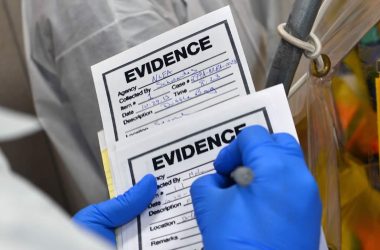CHICAGO —(ENEWSPF)–July 1, 2016. A federal grand jury in Chicago has indicted a Spanish investor for allegedly covering up an international insider trading scheme that netted more than $4.6 million.
LUIS MARTIN-CARO SANCHEZ bought options of Canadian fertilizer producer Potash Corporation of Saskatchewan Inc., a few days before the company publicly announced an unsolicited buyout offer that drove its stock price up 27.7%, according to the indictment. Sanchez made the timely trades after communicating with banking and investor friends in Spain, the indictment states.
In five days in August 2010 Sanchez netted approximately $496,953 – a return of approximately 1,046% on his investment, the indictment states. Two of his friends made similar trades and profited approximately $993,183, while a Spanish businessman in Greece profited more than $3.1 million after communicating with a mutual acquaintance of Sanchez, according to the indictment. In subsequent civil litigation brought against him by the U.S. Securities and Exchange Commission, Sanchez allegedly lied under oath and withheld key financial evidence.
The indictment was returned yesterday in U.S. District Court in Chicago. It charges Sanchez, 42, of Madrid, Spain, with one count of obstruction of justice and two counts of perjury.
Federal authorities will seek to extradite Sanchez to the United States. An arraignment date in federal court in Chicago has not yet been scheduled.
The indictment was announced by Zachary T. Fardon, United States Attorney for the Northern District of Illinois; David Glockner, Regional Director of the SEC’s Chicago Regional Office; and Michael J. Anderson, Special Agent-in-Charge of the Chicago Office of the Federal Bureau of Investigation.
According to the charges, Australian mining company BHP Billiton decided in August 2010 to make a tender offer for all of Potash’s common stock. BHP dealt with several foreign investment banks to secure confidential financing commitments in an effort to underwrite the offer. During a meeting in Chicago on Aug. 12, 2010, BHP’s chief executive officer conveyed a $38.6 billion buyout offer to Potash’s chief executive. Potash rejected the offer, but it did not publicly announce the matter until Aug. 17, 2010, according to the indictment.
During those interim five days, Sanchez communicated extensively with his banking and investor friends, the indictment states. On August 12 and 13, 2010, Sanchez purchased approximately 331 out-of-the-money call option contracts for Potash stock via an account at Interactive Brokers LLC, according to the indictment. Sanchez’s contracts were set to expire within weeks of the purchase date, the indictment states.
In a telephonic deposition taken as part of the SEC lawsuit on July 1, 2011, Sanchez allegedly lied under oath when he denied knowing other people who purchased Potash securities in advance of Potash’s announcement of the buyout offer. He also allegedly lied when he denied knowing the telephone numbers of two of those individuals. Telephone records indicate that Sanchez had called each of them numerous times in the days between the private offer and Potash’s public announcement of it, the indictment states.
In late 2010 a friend who profited approximately $540,493 from Potash options sales sent 100,000 euros to Sanchez’s bank account in Zurich, Switzerland, the indictment states. Sanchez withheld information about his Swiss account from the SEC during its investigation, according to the indictment. The SEC discovered the account and the friend’s payment in January 2014 – more than two years after the SEC’s lawsuit against Sanchez had ended, the indictment states.
The obstruction count is punishable by up to 20 years in prison, while the perjury counts each carry a maximum sentence of five years. The public is reminded that an indictment is not evidence of guilt. The defendant is presumed innocent and is entitled to a fair trial at which the government has the burden of proving guilt beyond a reasonable doubt. If convicted, the Court must impose a reasonable sentence under federal statutes and the advisory U.S. Sentencing Guidelines.
The government is represented by Assistant U.S. Attorney William Hogan.
Related Material:
Source: http://www.justice.gov








